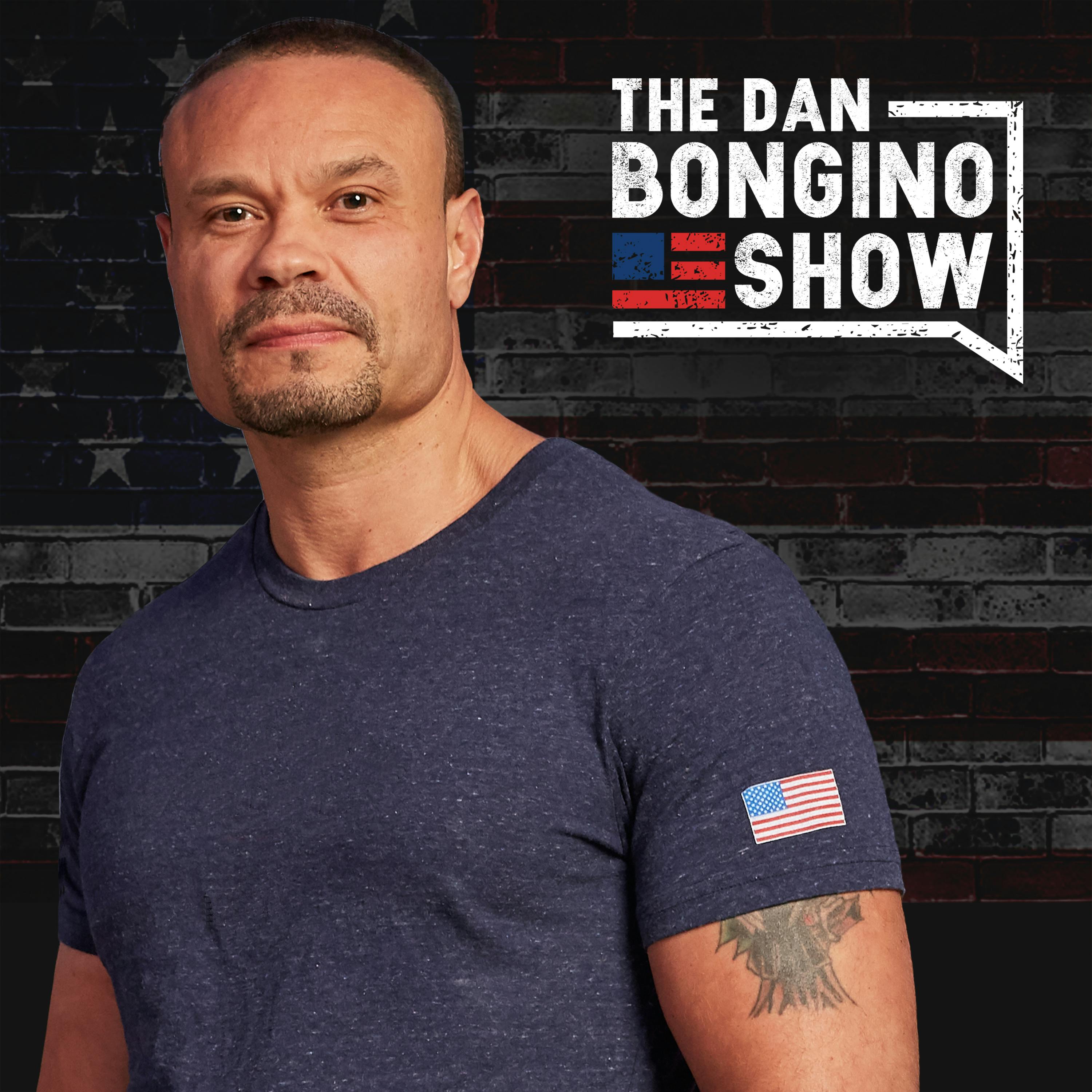AI Summary
In this episode, Steven Crowder discusses Donald Trump's designation as Time magazine's Person of the Year, exploring the implications of institutional corruption in journalism and intelligence. The episode critiques a CNN report about a Syrian prison escape, questioning its authenticity and media biases, particularly involving journalist Clarissa Ward. Further discussions include allegations against Jay-Z, resonating with broader celebrity culture, and controversies surrounding FBI Director Christopher Wray's resignation. The dialogue touches on themes of media disinformation, the ethics of journalism, and political correctness as exemplified by Canadian Prime Minister Justin Trudeau's statements.
Steven Crowder on 'Louder with Crowder' discusses various current events, including Donald Trump's recognition as Time's Person of the Year, CNN's controversial coverage of Syria, and Trump's comments on Prime Minister Trudeau. The episode features guest Josh Firestine and showcases a mix of political commentary with humor, addressing topics such as Jay Z's allegations and the resignation of Chris Wray.
Discussion centers around Steven Crowder's commentary on Donald Trump's selection as Time magazine's Person of the Year, touching on media malpractice and historical context. Allegations against Jay-Z regarding past misconduct are explored, reflecting on his influence in hip-hop culture. Additionally, the episode highlights public distrust in journalism, illustrating the impact of political bias on media perception.
Criticism revolves around Jay-Z's controversial past, including his actions in Cuba and violent history. The episode explores the media's role in shaping public perceptions of celebrities and the resulting double standards in coverage. Additionally, it highlights broader themes of mistrust towards institutions such as the FBI and discusses the implications of celebrity culture on societal views.
The podcast episode features a discussion on various political events, including the credibility of the media concerning Pete Hegseth's acceptance to West Point, critiques of liberal figures like Keith Olbermann, and Canadian Prime Minister Justin Trudeau's comments on U.S. politics. The hosts emphasize the importance of trusting institutions while examining media biases and the contradictions in support for the military.
- more AI-processed summary -
Takeaways
The episode highlights significant concerns regarding institutional corruption within intelligence and media sectors, particularly in the context of political narratives.
The controversial selection of Donald Trump as Time's Person of the Year serves as a springboard for broader discussions about his impact and the media's portrayal of political figures.
Crowder emphasizes the need for skepticism towards mainstream media figures who may have conflicts of interest, fostering a broader discussion about accountability in journalism.
The podcast underscores the importance of scrutinizing media narratives, particularly concerning significant political events like January 6th and the surrounding commentary.
The discussion indicates a significant dissatisfaction with FBI leadership under Christopher Wray, highlighting the political and public trust issues surrounding the agency.
The episode highlights the critical importance of truth and transparency in both institutional processes and media reporting, especially when individuals like Pete Hegseth are involved in public scrutiny.
- more AI-processed takeaways -
Topics
Donald Trump
Donald Trump has been a polarizing figure in American politics, known for his unorthodox approach and controversial policy decisions. His recognition as Time's Person of the Year fuels ongoing debates about his influence on the political landscape.
Institutional Corruption
Institutional corruption refers to the failures and biases within organizations such as the FBI and media that hinder transparency and accountability. The podcast underscores how these issues affect public trust and perceptions of government.
Media Misinformation
The discussion addresses how media narratives can be manipulated by political influences and intelligence agencies, particularly in the context of allegations against figures like Hunter Biden and their portrayal in the press.
FBI Director Resignation
The episode addresses the resignation of FBI Director Christopher Wray, linking it to broader themes of institutional integrity and the challenges faced by law enforcement agencies in contemporary political climates.
Mainstream Media Critique
Mainstream media critique involves analyzing and questioning the narratives presented by dominant news organizations, considering bias, sensationalism, and the impact of these narratives on public perception.
Public Perception
Public perception is how the general populace views issues, events, and figures, often influenced by media narratives. The podcast discusses this dynamic in relation to Trump, January 6th, and the shifting sentiments surrounding them.
Crisis Reporting
Crisis reporting involves documenting events in high-stakes situations. It raises ethical questions about accuracy, the potential for misrepresentation, and the impact on public perception.
Disinformation in Politics
Disinformation refers to the deliberate spread of false information to mislead or manipulate public opinion, particularly in political contexts. The podcast discusses various examples, including the Hunter Biden laptop narrative, showcasing how such tactics serve to distract and distort the truth.
Media Integrity
Media integrity refers to the ethical standards and honesty upheld by media outlets. The discussion critiques how integrity can be compromised when media focuses on sensationalism rather than facts, leading to public distrust.
Smear Campaigns
Smear campaigns involve the dissemination of false or exaggerated information to damage someone's reputation, typically in a political environment. The conversation highlights the case of Pete Hegseth, drawing parallels to previous instances, emphasizing their detrimental effects on individuals and public trust.
Celebrity Accountability
This topic revolves around the standard to which public figures are held for their actions. The discussion highlights an apparent disparity in media scrutiny for celebrities like Jay-Z and Diddy, compared to everyday individuals who face similar issues without the same support or attention.
Leadership Accountability
Leadership accountability entails the responsibility leaders have for their actions and statements. The podcast underscores the need for leaders to own their imperfections, suggesting this is vital for fostering trust and connection with constituents.
Political Commentary and Celebrity Influence
This refers to the intersection of politics and entertainment, examining how celebrities shape political narratives and how their actions might contradict their statements about morality or political beliefs.
- more AI-processed topics -
Related Episodes

 TDS Time Machine | 2024 Foxsplains
TDS Time Machine | 2024 FoxsplainsIn this episode, Desi Lydic humorously analyzes major 2024 events, including the intriguing relationship between Taylor Swift and Travis Kelce, speculating its potential political motivations tied to conspiracy theories about the Biden administration. The discussion also critiques Donald Trump's $454 million fraud conviction, suggesting it reflects partisan actions following the 2020 elections. Furthermore, Lydic explores Trump's complex stance on abortion as an electoral strategy, emphasizing the nuances within GOP views. The episode concludes with a satirical commentary on the bizarre nature of political rhetoric and the state of American politics.
- The podcast employs satire to dissect modern celebrity culture and its intersection with politics, illustrating how public figures can be humorously misinterpreted as pawns in larger political games.
- The segment uses humor to critique the legal actions against Trump, suggesting that the prosecution may be more about political maneuvering than justice, with a focus on victimless crimes.

 The Aftermath of a Legendary Amfest + Merry Christmas
The Aftermath of a Legendary Amfest + Merry ChristmasIn this episode, Charlie Kirk reflects on the recent AmericaFest event in Phoenix, highlighting key moments such as Donald Trump's keynote speech and the participation of influential figures like Tom Homan. The discussion includes the mobilization of conservative voters, the importance of election integrity, and critiques of the Biden administration's policies, particularly regarding criminal justice reforms. The segment concludes with an acknowledgment of Rush Limbaugh's influence on the conservative movement and a festive message as the Christmas season approaches.
- The AmericaFest event served as a platform for Trump to reinforce his support for conservative activism and the vital role of grassroots efforts in achieving electoral success. Such mobilization efforts have markedly shifted voting trends, particularly among minority groups.
- Ken Paxton stresses the urgent need for addressing election integrity issues to avoid future complications in upcoming elections, particularly in the wake of Joe Biden's controversial clemency decisions.

 How Trump's early days in 2017 might be different from the upcoming term
How Trump's early days in 2017 might be different from the upcoming termThis episode reflects on Donald Trump's early presidency in 2017, highlighting his rapid and controversial actions, including the travel ban on Muslim-majority countries. It explores how Trump's team has learned from past experiences and aims for a more structured approach in his upcoming term. The discussion also includes insights from both Trump's officials, who express confidence in a better execution of policies, and the ACLU, which is preparing for potential legal challenges against future executive orders.
- Trump's initial term was characterized by rapid and contentious executive actions, which led to widespread unrest and legal challenges. His team claims to be better prepared for a second term, aiming for a more coordinated approach.
- The ACLU's proactive stance in anticipating legal challenges signifies the increased scrutiny expected in response to Trump's policy plans, particularly regarding immigration and civil liberties.

 The Biggest Amfest Ever Begins
The Biggest Amfest Ever BeginsIn this episode, Charlie Kirk highlights the opening day of AmFest, the largest Turning Point event, emphasizing Donald Trump's keynote address and grassroots efforts that have influenced political dynamics in battleground states like Arizona and Pennsylvania. The discussion includes insights from Steve Bannon on the evolution of Trump rallies, the complexities of government funding negotiations, and the need for Republican unity in response to potential shutdowns. Cliff Maloney reflects on successful mobilization strategies in Pennsylvania, showcasing the significance of grassroots activism for electoral success. The episode underscores a call for ongoing engagement and accountability within the conservative movement.
- AmFest represents a significant gathering for conservatives, showcasing the mobilization and engagement within the community, especially among youth.
- Trump rallies illustrate a paradigm shift in political events, showcasing an informal, engaging approach that resonates with many Americans, departing from traditional structures. The discourse around Constitutional interpretations and legislative challenges reflects a broader struggle within the government that voters are increasingly aware of.

 #2245 - Rod Blagojevich
#2245 - Rod BlagojevichRod Blagojevich, the former governor of Illinois, discusses his experiences related to corruption charges and the political machinations that led to his imprisonment. Highlighting a perceived pattern of political persecution, he shares insights on his trials, the manipulation of legal standards, and the impact of media portrayal. Blagojevich reflects on the broader implications of political corruption, the need for justice system reform, and his personal journey of resilience during incarceration, emphasizing the importance of faith and the quest for redemption.
- Blagojevich's case highlights the potential for political motivations to shape legal proceedings, raising concerns about justice and the integrity of the political system.
- His refusal to admit guilt underscores a complex interplay of morality, legality, and personal belief in the context of political allegations and corruption.

 Looking At Reproductive Rights In 2024
Looking At Reproductive Rights In 2024The podcast discusses the implications of the Supreme Court's 2022 decision to overturn Roe v. Wade as the 2024 elections approach. Sarah McCammon, Mara Liasson, and Elissa Nadworny explore Donald Trump's evolving position on abortion, emphasizing state-level control and the role of telehealth in increasing abortion rates. They analyze recent voter behavior, noting a trend of individuals supporting abortion rights while also voting for Trump, which presents challenges for Democrats. Additionally, the effectiveness of state ballot measures on abortion rights and the complexities of legal regulations regarding reproductive access are highlighted.
- The trajectory of reproductive rights in the U.S. is heavily influenced by political shifts, especially with the upcoming elections potentially shaping future policies under a second Trump administration.
- The increase in abortions, despite the anti-abortion movement's successes, highlights a changing landscape facilitated by technology and evolving healthcare delivery methods.

 RFK and Hegseth's Path to Confirmation, and Dangers of AI, with Mark Halperin, Sean Spicer, Dan Turrentine, and Tristan Harris | Ep. 967
RFK and Hegseth's Path to Confirmation, and Dangers of AI, with Mark Halperin, Sean Spicer, Dan Turrentine, and Tristan Harris | Ep. 967In this episode, the hosts discuss the evolving political landscape, focusing on Donald Trump's pragmatic media engagements and legal strategies. The dialogue includes Robert F. Kennedy Jr.'s candidacy and the implications of AI technologies on youth mental health. The hosts analyze the dynamics within the Republican Party, particularly regarding nominees like Pete Hegseth, while addressing the challenges faced by Kamala Harris. The conversation emphasizes the need for media accountability and the critical impact of emerging technologies in society.
- There is a notable shift in the public's perception of Trump, driven by a sense of resignation among Democrats and a realization of Trump's political leverage.
- Despite being a Democrat, RFK Jr. may garner surprise support from Republicans and Democrats alike, revealing shifting alliances within U.S. political landscapes.

Trump Drops The Hammer At Press Conference (Ep. 2389)It was so nice to hear President Trump at a presser again; cannot wait for four years of it to come. In this episode, I'll discuss the horrific tragedy in Madison yesterday, and the disgusting left's reaction to it before the bodies were even cold.
PROTECTING AMERICA’S SCHOOLS A U.S. SECRET SERVICE ANALYSIS OF TARGETED SCHOOL VIOLENCE
Trump Is Back, This Time Without Disdain
Biden Admin Dumped Hundreds Of Thousands Into Ensuring Military Parents Affirm Their Child’s Gender Identity
Learn more about your ad choices. Visit podcastchoices.com/adchoices

 ABC Pays Trump $15M, January 6 Cover Up, Trudeau To Resign, NJ Drone Theories | PBD Podcast | Ep. 521
ABC Pays Trump $15M, January 6 Cover Up, Trudeau To Resign, NJ Drone Theories | PBD Podcast | Ep. 521This episode of the PBD Podcast delves into various significant topics, particularly focusing on Donald Trump's recent $15 million libel settlement with ABC related to comments by George Stephanopoulos, his reactions to mysterious drones reported over New Jersey, and new insights into the FBI's involvement during the January 6 insurrection. The panel also discusses the mounting pressure on Canadian Prime Minister Justin Trudeau to resign amid political turmoil and dissatisfaction among citizens, underscoring the current landscape of political accountability and media influence in both the U.S. and Canada.
- The podcast underscores the intertwined nature of current events and political maneuvers, particularly showcasing Trump's legal battles and public perceptions.
- The mention of FBI informants highlights ongoing controversies regarding accountability and the truth surrounding the January 6 events.

Is Biden Quiet Quitting?Joe Biden cedes the spotlight to Donald Trump, who's rolling like he's already taken office: meeting with world leaders, attending the annual Army-Navy game, and calmly announcing the next targets in his legal offensive against the media. Jon, Lovett, and Tommy discuss what Biden could and should be doing in the final weeks of his presidency, what ABC's settlement with Trump says about the state of political media, the mysterious drone-like things over New Jersey, and Trump's pledge to end Daylight Saving Time. Then, Rep. Ro Khanna stops by to talk with Jon about how Democrats in the next Congress can strike the balance between resisting Trump and getting things done, and why he's willing to collaborate with Elon Musk on DOGE. For a closed-captioned version of this episode, click here. For a transcript of this episode, please email
[email protected] and include the name of the podcast.










